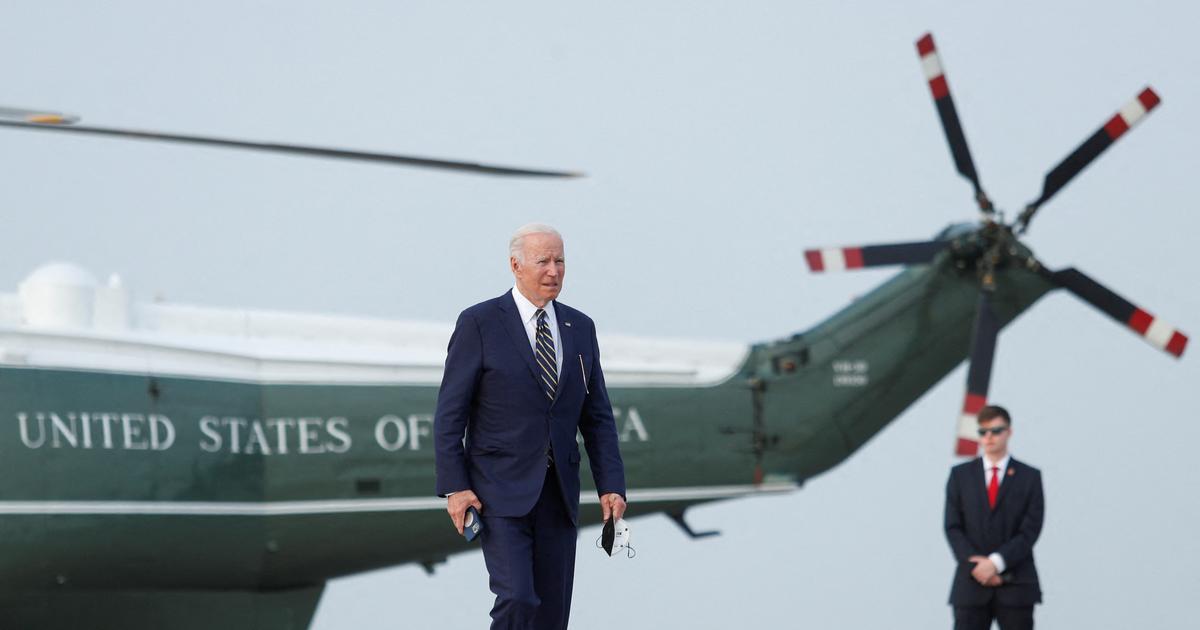Joe Biden welcomes the leaders of Southeast Asian countries to Washington on Thursday, May 12, to show the concrete commitment of the United States in this region in the face of China's growing appetites, which could take the form of a commercial initiative. revisited.
Before the Russian invasion of Ukraine, the American president had clearly defined his top priority on the international scene: competition tinged with confrontation with Beijing.
The summit with the Association of Southeast Asian Nations (ASEAN), which opens Thursday May 12 with a dinner before other meetings on Friday, should allow the Democrat, monopolized for months by the Russian- Ukrainian, to re-emphasize its Asian policy.
To discover
Taxes 2022: all about your tax return
Read alsoArmy, economy, space, demography... of the United States or China, who is leading the game?
Its chief adviser for Asia, Kurt Campbell, explained that the United States intends to discuss with Indonesia, Thailand, Singapore, Malaysia, the Philippines, Vietnam, Cambodia, Laos and Brunei the areas of cooperation such as the fight against Covid-19.
He also said he expected
"significant interest"
from some of these countries in the Indo-Pacific Economic Framework (IPEF), the latest US trade initiative announced in late 2021 by the Secretary of State Antony Blinken during a visit to Jakarta.
“We have good hopes of being able to have a substantial launch with a very large panel of potential players
,” assured Kurt Campbell,
Sovereignty turn
Koji Tomita, Japan's ambassador to Washington, clarified at a separate event that he expects the IPEF to be formally launched the following week, during a much-anticipated visit by Joe Biden to Tokyo. and in Seoul.
Former Democratic President Barack Obama had proposed a Trans-Pacific Free Trade Treaty (TPP), presented at the time as a key instrument for the United States to be in the front line in this region, which he had already made a priority.
But his Republican successor Donald Trump, in his sovereignist turn, had turned his back on this agreement, which he considered unfavorable to American workers.
Joe Biden, yet Obama-era Vice President, has made it clear that he is in no rush to relaunch major free trade deals,
Experts say IPEF plans to formally engage the United States to work with partners on economic priorities, such as improving supply chains disrupted since the pandemic, fighting corruption or promoting clean energy .
But unlike traditional trade agreements, this initiative will not guarantee market access to the United States, the world's largest economy - which is usually granted to obtain concessions from other countries.
Read alsoJoe Biden enlists Seoul to counter Beijing
Kurt Campbell assured that President Biden did not intend to embark Asia
"in a new Cold War"
, and that any trade agreements should meet the
"needs"
of the populations of the region.
China has been ASEAN's biggest trading partner for more than a decade, despite intense territorial tensions between Beijing and several forum members such as Vietnam and the Philippines.
The Washington summit also comes as the United States has steadily increased pressure on Burma for more than a year in response to the February 2021 military coup. US officials have said they would show their support for the democratic forces of Burma, and that the country would probably be represented by an empty chair during the meetings.

